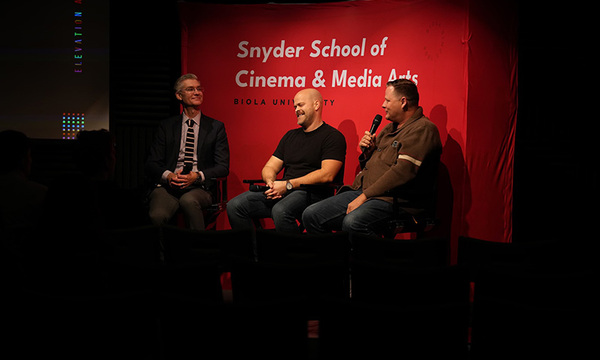Owners of closely held private businesses do not have to provide free access to contraceptive drugs that violate their religious convictions, the United States Supreme Court ruled June 30 in a case that has been watched closely because of its potentially far-reaching implications for religious liberty.
In a 5–4 ruling, the court determined that Hobby Lobby and Conestoga Wood Specialties, Christian-owned companies, do not have to comply with a federal regulation under the Affordable Care Act (ACA) that requires employers to either offer insurance coverage for all government-approved contraceptive drugs — including those that might cause abortions — or pay substantial fines.
Though the case dealt narrowly with closely held, for-profit corporations, it has been watched closely by faith-based nonprofit organizations such as Biola University that have similar objections to the ACA. To date, 51 lawsuits have been filed by over 120 nonprofit organizations — including Biola — to challenge the ACA mandate on the grounds that it violates federal protections of religious liberty. In December 2013, Biola was granted a preliminary injunction by the court relieving Biola from complying with the mandate while its lawsuit against the federal government proceeds.
In response to the highly anticipated Supreme Court ruling, Gregory S. Baylor, senior counsel for Alliance Defending Freedom, the organization representing Biola in its case, answered questions about the implications of the Hobby Lobby decision as well as the status of Biola’s ongoing federal lawsuit.
What did the U.S. Supreme Court decide in the Hobby Lobby case?
Baylor: The court held that the federal government violated the Religious Freedom Restoration Act (RFRA) by forcing two for-profit businesses and their religiously pro-life family owners to include abortifacients in their employee health insurance plans. To reach that ultimate conclusion, the court held: (1) that closely held for-profit corporations are able to exercise religion and thus invoke legal protections of religious exercise; (2) that the mandate “substantially burdened” the religious exercise of Hobby Lobby and Conestoga; and (3) that the mandate was not the “least restrictive means” of advancing the government’s stated interests in public health and women’s equality.
Does this decision have any bearing on Biola’s case?
Baylor: The courts adjudicating Biola’s civil rights challenge to the mandate will, of course, have the final say regarding the significance of the Hobby Lobby/Conestoga decision to Biola’s claims. But the Supreme Court’s decision should be helpful to Biola’s cause. The court indicated that government “substantially burdens” religious exercise in violation of RFRA whenever it imposes significant pressure upon an individual or organization to violate its religious convictions. The federal government is pressuring Biola to violate its religious beliefs by complying with the abortion pill mandate, and Biola would suffer the same financial penalties for non-compliance that Hobby Lobby and Conestoga faced.
What’s the status of Biola’s federal lawsuit?
Baylor: Biola remains protected from the mandate by the preliminary injunction the district court awarded back in December 2013. The government appealed that injunction to the U.S. Court of Appeals for the Seventh Circuit, and briefing is underway. The parties will undoubtedly discuss the relevance of the Supreme Court’s decision to Biola’s claims.
Why is Biola opposed to the mandate?
Baylor: First, the mandate inappropriately distinguishes among types of religious organizations without good reason. Churches and church-controlled organizations are exempt; intentionally religious educational institutions like Biola are not. Second, the mandate forces Biola to engage in conduct (facilitating access to abortifacients) that it considers to be sinful. Also, complying with the mandate undermines its freedom to foster a community that shares a commitment to Christian principles, including the sanctity of life.
For more information, see previous coverage of Biola’s federal lawsuit in Biola Magazine and Biola Now. Additionally, Biola professors Scott Rae and Tom Wilson recently filmed a discussion about the business, ethical and legal issues related to the Hobby Lobby case.
 Biola University
Biola University
_(1).jpg)
